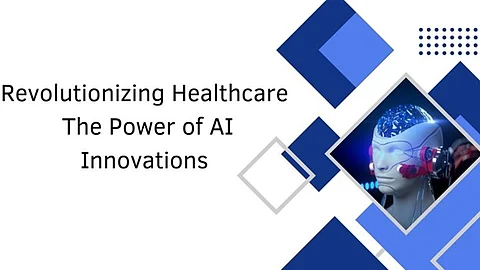

Artificial intelligence is transforming the health care industry since it presents the ability to make much-needed accurate diagnoses while personalizing treatment options and decreasing inefficiency in patient care processes in this fast-growing digital era. Anjaneyulu Prabala Sriram, an expert in software technology, explores transformative AI-driven innovations that are reshaping medical practices and research. His insights emphasize the profound impact of AI on healthcare, highlighting its potential to address complex challenges and unlock a promising future for global health systems.
AI-based diagnostic technologies are changing the way medical conditions are identified. Deep learning algorithms are now far better in medical imaging than the conventional methods. For instance, AI-based dermatological image analysis has achieved more than 95% accuracy in reducing misdiagnosis. In radiological applications, AI helps identify abnormalities in X-rays and MRIs with sensitivity rates of more than 96%, leading to faster and more accurate diagnoses for critical conditions.
Predictive analytics integration has enabled healthcare professionals to predict medical events with unprecedented accuracy. Machine learning models, trained on vast datasets, predict patient readmission risks with up to 90% accuracy. This allows providers to implement proactive measures that cut readmission rates by 25%. Furthermore, AI optimizes resource management, improving the efficiency of hospital operations and cutting emergency department wait times by nearly a third.
Such capability of AI to scrutinize extensive patient data has been responsible for the advent of personalized medicine. In oncology, for instance, algorithms examine hundreds of patient variables to recommend tailored chemotherapy regimens. Notably, this has improved patient outcomes by 34% with the intensity of adverse reactions reduced. Other chronic diseases are also managed such that drugs used are uniquely suited to the individual's needs.
AI has decreased the time to market drugs considerably. AI-based systems scan the molecular structures and biological interactions that point to the drug candidates. Discovery timelines in early stages are now reduced by 60% and candidate success rates are up by 40%. Such discoveries do not only save time to market life-saving drugs but also save significantly the cost involved in them.
AI extends to real-time patient monitoring, which is very critical in intensive care and chronic disease management. Advanced systems mine high volumes of continuous streams of patient data for predicting critical events in advance of actually taking place up to 48 hours in advance. Such capability has led to a reduction of 42% in cardiac arrests among monitored patients. Predictive insight so enabled allows health care providers to intervene earlier, saving lives and enhancing patient outcomes.
AI-based tools are bringing immense value in the mental health space. NLP algorithms are used to analyze patient conversations for early signs of mental health conditions with a near accuracy of 90%. The virtual therapy platform, powered by AI, is highly effective and accessible with higher patient satisfaction and better adherence to treatment.
Transformative potential notwithstanding, AI raises several critical ethical issues. Data privacy and minimizing biases in algorithms must be ensured. Research has established that institutions which have in place robust governance frameworks experience fewer instances of privacy breaches and higher adherence to ethical standards. Transparency and accountability in AI systems promote trust among healthcare providers and patients alike.
This is to say that the future of healthcare directly depends on the continuously assimilated advanced AI technologies such as edge computing, federated learning, and NLP. Undeniably, these groundbreaking technologies will revolutionize the diagnostic process by providing real-time analysis and easy access to actionable insights. In so doing, it improves health services operations by avoiding inefficiencies in their systems that are cost-expensive. And they give exceptionally personalized care custom-made for an individual's singular needs among everyone in the globe. Data privacy, fairness, and accountability now become priority, though. Responsibility in implementing all these new emerging technologies will bound modern health sectors through AI redefinition.
In summary, Anjaneyulu Prabala Sriram discusses the transformation in the health sector brought by AI. These changes clearly demonstrate that AI has played a foundational role in developing medicine and its evolution. With further technological progress, AI will continue to play a foundational part in this development and will help improve diagnostics and treatment plans for patients as well as enhance efficiency. Health care is promised to be healthy, efficient, and closely related to the world of artificial intelligence.
